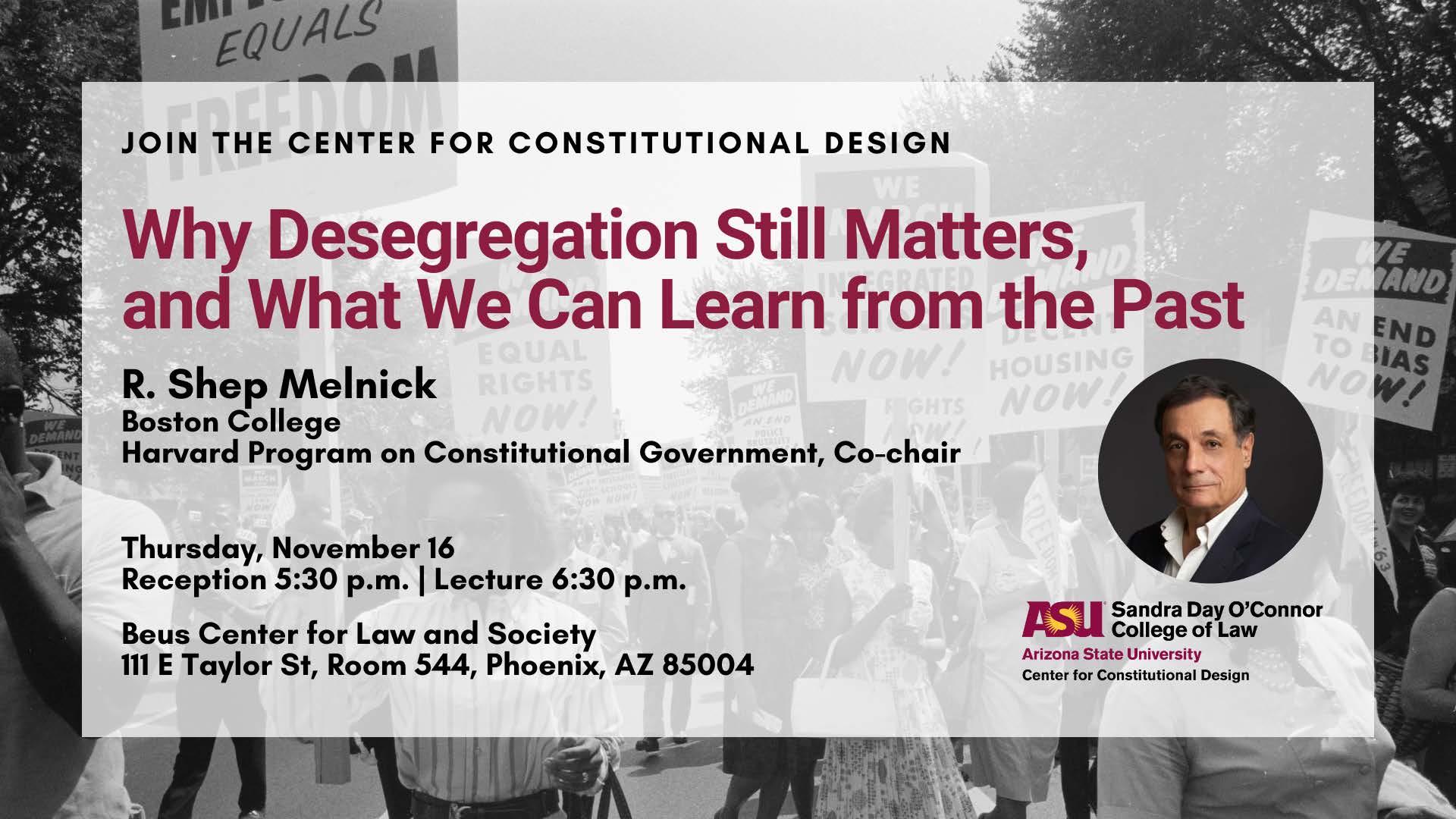Why Desegregation Still Matters and What We Can Learn from the Past

Event description
- Open to the public
Was school desegregation a stunning success or a tragic failure? Americans have been debating this question for over half a century. Part of the difficulty of answering it comes from the variety of forms “desegregation” has taken — from ending legal segregation in the South to addressing the effects of residential segregation in the north and west; from efforts to reduce the achievement gap between white and Black students to coping with the rapid influx of Hispanic and Asian students, many of whom are English learners. Equally important is the divergent meaning judges, policy advocates, and academic experts have given to the ambiguous term “desegregation.” To some, “desegregation” means ending racial discrimination by public officials. To others it means creating racially balanced schools and classrooms. To still others it means much more — providing equal educational opportunity to all students.
The purpose of this lecture is to help us understand the lessons of decades of desegregation efforts by explaining the divergent meanings so frequently given to that key term, the ways in which underlying educational problems have evolved over time, and what we know about the long-term consequences of various desegregation strategies.
Continuing Legal Education credit will be offered for this event.
Reception: 5:30 p.m.
Lecture: 6:30 p.m.

